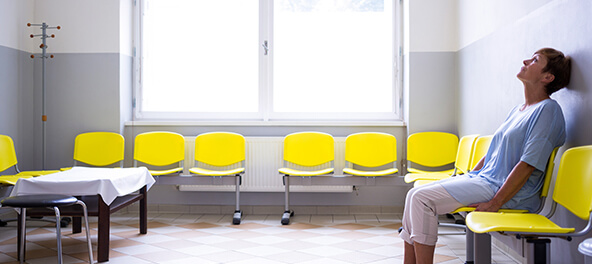Over the last decade, the number of individuals struggling with mental health issues has increased, while the number of inpatient beds for mental health patients has continually declined. The journal Psychiatric Services estimated in 2017 that more than 8 million Americans were suffering from serious psychological problems. Unfortunately, this coincides with an ongoing trend of deinstitutionalization that began over 50 years ago when state hospitals decided that many of their mentally ill inpatients would do just as well in the community.
Last year Dominic Sisti, director of University of Pennsylvania’s Scattergood Program for Applied Ethics of Behavioral Health Care, told NPR that in the late 50s and early 60s “State hospitals began to realize that individuals who were there probably could do well in the community. It was well-intended, but what I believe happened over the past 50 years is that there’s been such an evaporation of psychiatric therapeutic spaces that now we lack a sufficient number of psychiatric beds.”
At the time, people felt that community based care options would serve patients more effectively and economically. Unfortunately, over the years, support for these programs has been inconsistent, and a group of people who truly do need inpatient care are unable to get it due to economic barriers or just straightforward shortage of beds.
Thankfully, some hospitals are addressing the lack of facilities with the expansion of existing mental health facilities or even the creation of new ones. Tina Reed, Executive Healthcare & Hospitals Editor for FierceHealthcare, reports that the Children’s Hospital of Richmond at VCU recently redesigned its behavioral health center, adding 8 more beds. San Francisco opened a new 54-bed inpatient facility, Mercy Medical Center revealed plans for a psychiatric hospital in Iowa with room for 100 patients, while more psychiatric hospital projects have already been built or are underway in the Northeast United States.
Meanwhile, in Falls Church Virginia, Inova Health Systems will debut their new behavioral health inpatient unit, which offers private rooms, space for group therapy, natural light, and high tech safety features which includes doors that cannot be barricaded. With a separate floor for teenagers, this facility looks to provide specialized mental healthcare with a staff dedicated to preventing suicides and overdoses, treating anxiety, depression, and substance abuse before it’s too late.
The shortage in beds has spurred this growth, but Inova is committed to providing not only top flight inpatient care for mental health, but also follow-up programs and integrated help from social workers and counselors to provide coordinated outpatient treatment once the patient is back at home.
Michelle Mullany, Inova’s assistant vice president of behavioral health says that investing in units such as theirs are an important step toward changing the current landscape of mental healthcare in the United States. “We don’t necessarily give enough time to see how the trajectory of the improvement is on those medications, we discharge folks,” she says, in regard to the general state of mental health care our country, “Having an increase in beds will help us prevent readmission and really get that treatment right from the beginning.”
Emerald Coast Medical Association recognizes the importance of mental health providers to the healthcare landscape. We are proud to have many fine psychiatrists as members, and we value their contribution to the care and well-being of our local patients. We encourage you to search our listings for our mental health care specialists or any sort of practitioner you or your patients may need. When we work together, we effect change, on a large scale as well as among individuals.
Please click below to explore our member directory.
![]()

